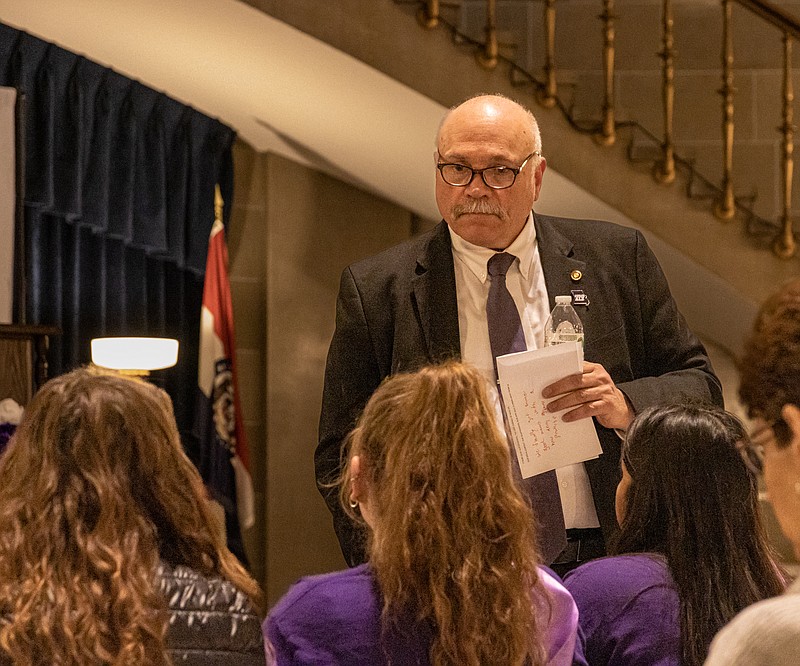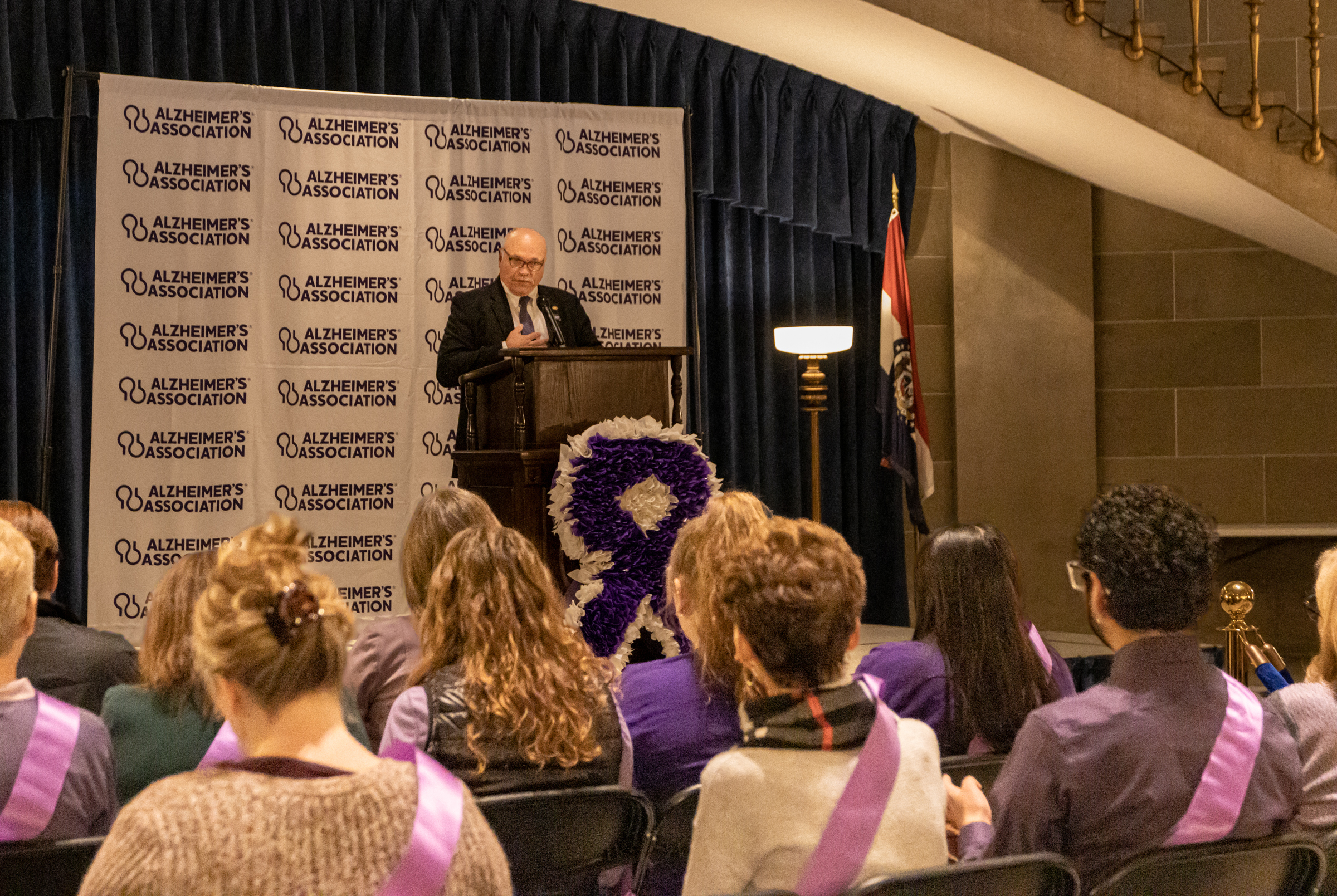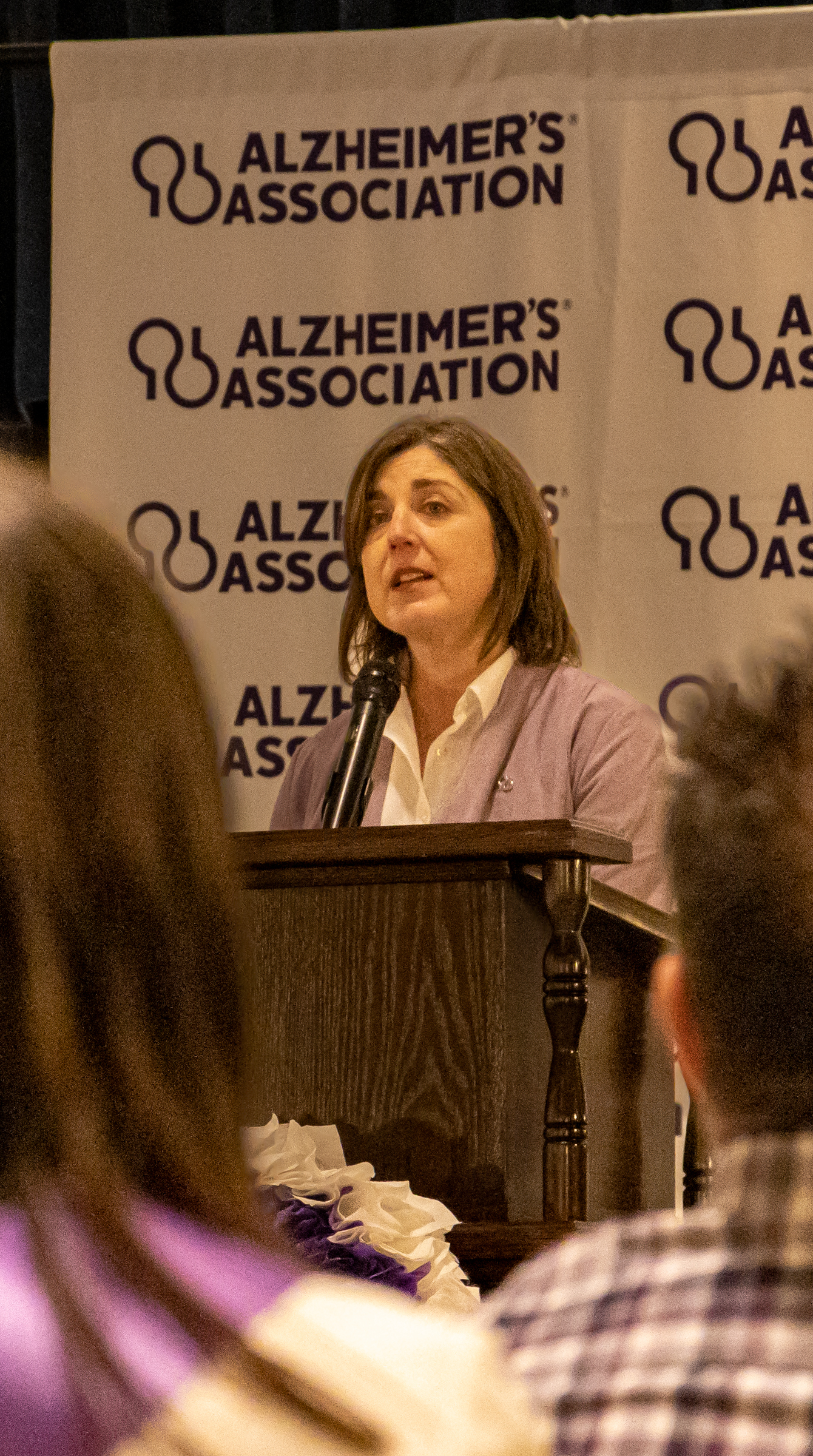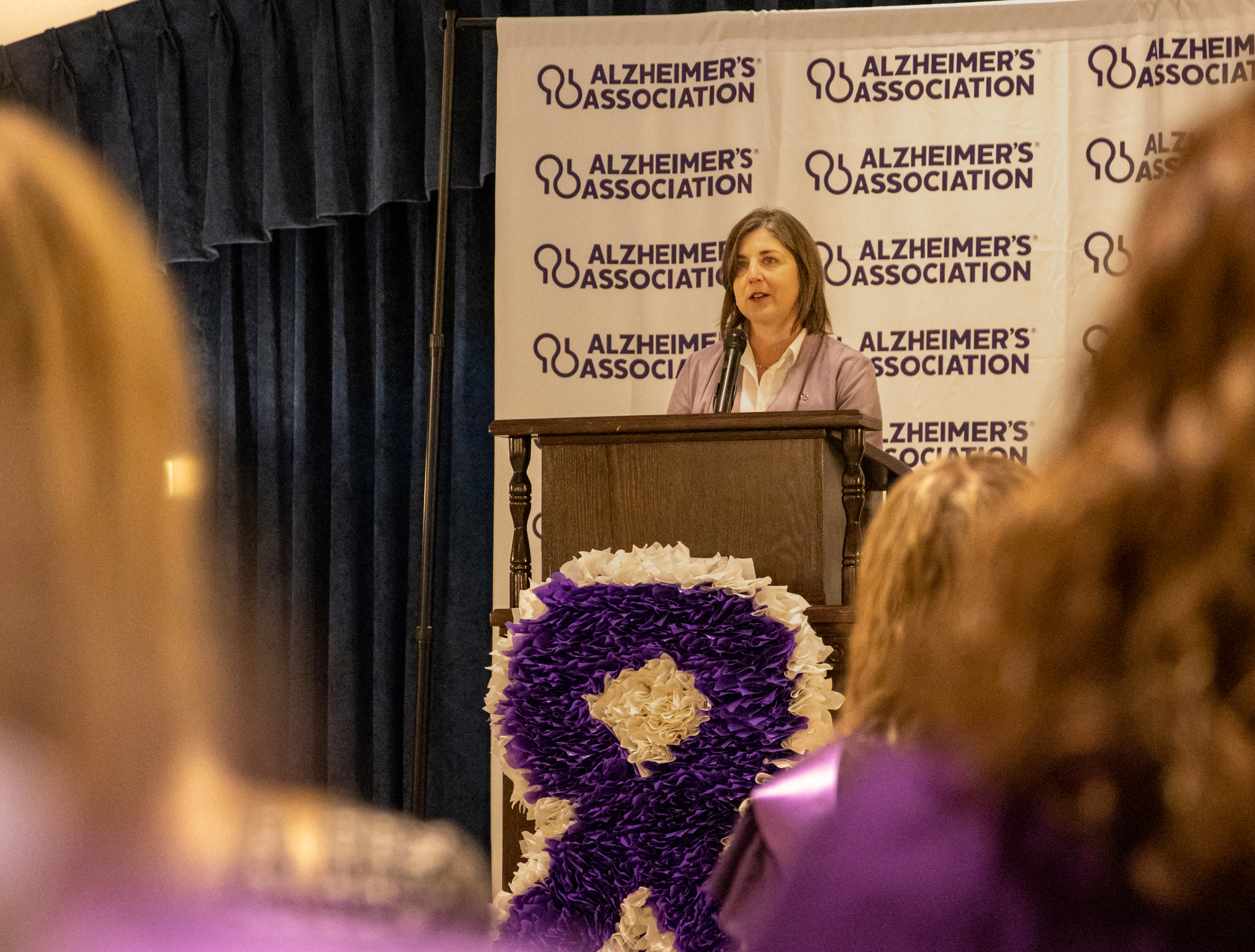Research has made promising, recent breakthroughs in Alzheimer's disease and dementia treatment. And activists' voices and passion keep pressure on to continue successes across the state, according to Sarah Lovegreen.
Lovegreen, the vice president of programs for the Alzheimer's Association of Greater Missouri, told advocates from across the state Wednesday during the annual Memory Day in Jefferson City that only three years ago, patients, families and caregivers were looking forward to treatments on the horizon.
"Fast forward to today -- we have two (U.S. Food and Drug Administration)-approved treatments," she said during a closing ceremony in the Missouri Capitol. "And much more research happening."
In January, she said, the FDA gave summary approved to LEQEMBI (lecanemab) for Alzheimer's treatment. It joined Aduhelm (aducanumab) as the first treatments that target underlying hallmarks of Alzheimer's disease -- beta-amyloid.
In Alzheimer's, the beta-amyloid proteins clump together, forming plaques. The clumps may block cell-to-cell signaling at synapses. They may also activate immune system cells (microglia) that trigger inflammation and devour disabled cells. Another abnormal protein found in Alzheimer's disease patients, phosphorylated tau, may accumulate and form threads and tangles inside neurons. Tangles block neurons' transport system, harming communication between neurons.
Lovegreen said the two treatments represent a very small portion of the volume of treatments that are nearing.
"There are over 140 unique therapies that are being tested in clinical trials right now. Beyond treatment, there is exciting news in detection and diagnosis as well," she added.
Diagnoses need to happen much earlier than they can currently occur, Lovegreen said. The most significant breakthrough in detection uses blood-based bio-markers.
"Basically, a blood test. It's easier, less invasive and less costly for detecting amyloid or tau -- the two hallmarks of Alzheimer's in the brain. These blood tests hold incredible promise for improving and possibly even redefining the diagnosis of Alzheimer's," she said. "This is huge because right now, diagnosis is occurring once symptoms are present. And as we know, the disease could be in our brains 10, 15 and even 20 years before symptoms are present."
During Memory Day, advocates visited with lawmakers in the Capitol to call on them to embrace the Missouri State Alzheimer's Plan, which was developed by the Missouri Alzheimer's State Plan Task Force. The task force in late December released the report of its findings, after taking three months to meet with the public and take testimony.
The report identified four focus areas:
• Advance risk reduction, early detection and timely diagnoses with a goal of expanding access to resources to reduce stigma surrounding dementia and increase early detection.
• Increase access to care, support and treatment with a goal of increasing funding for Alzheimer's respite grants in the state budget, and with a goal of using community health workers to assist with providing dementia care. This focus area includes assurances that MO HealthNet (Missouri's Medicaid program) provides appropriate coverage for approved drug and clinical treatments for persons living with dementia.
• Improve quality care with a goal of improving residential and home- and community-based service provider licensure requirement for dementia care. Another goal is to improve dementia competency of health care providers, first responders and caregivers to deliver person-centered care through dementia-specific and culturally competent training. A third goal of this focus area would be to accelerate workforce development in dementia care professionals.
• Ensure a coordinated statewide response with a goal to create a statewide crisis response system that supports the unique behavioral needs of people living with dementia. And the state should establish and fund a full-time state agency position to coordinate the state's response to dementia.
Jamie Gideon, the Alzheimer's Association (Missouri, Kansas, Oklahoma and Arkansas) region public policy lead, said dementia is a public health crisis in Missouri.
More than 120,000 people have been diagnosed with Alzheimer's disease. The number is going to grow as Baby Boomers age, Gideon said. By 2025, the number of people with the disease in Missouri is expected to grow by about 10,000.
The most dramatic changes will occur by 2050, she added. By then, the number of people with Alzheimer's disease could double.
The Alzheimer's Association participated in putting together the state's Alzheimer's task force," Gideon said. The point of the task force, she said, was to create a state plan.
"A state plan is really a needs assessment -- a road map, if you will, of the state for Alzheimer's. It has a list of priorities for the state to work on," Gideon said.
Advocates shared those priorities with lawmakers Wednesday, she said.
The top goal for advocates on Wednesday was to encourage lawmakers to implement the state plan. Under the state plan, the Alzheimer's Association's top two recommendations were to create a dementia service coordinator position within the Public Health Division of the Missouri Department of Health and Senior Services, and to increase funding for Alzheimer's respite grants.
"In Missouri state government, there's no position that solely addresses Alzheimer's. There are positions that look at aging, but none that look on Alzheimer's," she said. "Twenty-nine other states have this in existence right now. They've seen all kinds of cost savings, elimination of duplication of services -- really addressing the public health crisis."
Missouri currently has $450,000 in respite grants available to caregivers.
"We want to increase it to almost $1 million," Gideon said. "We're trying to add it to the overall budget."




